Trick #1: Tryp your sleep switch


Don’t count sheep, eat lamb! (Or better yet, a bit of turkey.) Tryptophan, an amino acid found in most meats, has demonstrated powerful sleep-inducing effects.
Trick #2: Schedule tea time
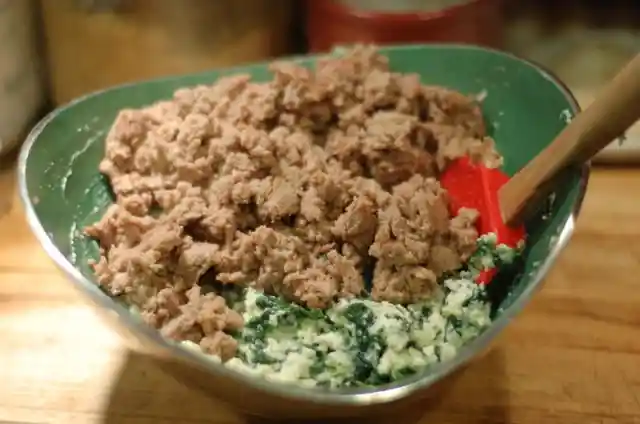

A recent study among insomniacs found that just 1/4 gram—about what you’ll find in a skinless chicken drumstick or three ounces of lean turkey meat—was enough to significantly increase hours of deep sleep. And that can can translate into easy weight loss.
“There is something about the ritual of sitting down to a soothing cup of tea that tells your brain to slow down and relax,” says Falamas.
Trick #3: Eat whole grains at lunch whole grains


“Some of the best teas for sleep are chamomile, peppermint, lavender and valerian, which actually does have some sedative properties.”
You know to avoid big meals, coffee, colas and alcohol before bed, but did you know that it’s best to eat your complex carbohydrates at lunchtime, not with dinner? “Serotonin converts to melatonin in your stage 3 REM sleep, and serotonin is sourced from whole-grain complex carbohydrates.
Trick #4: If you eat at night, keep it small tapas
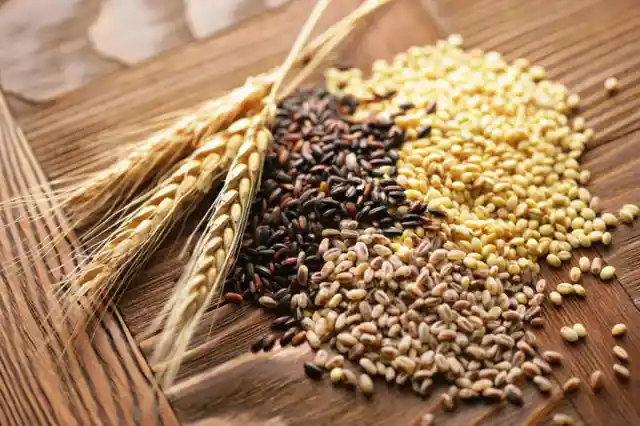

So you don’t need to have carbs before bed to sleep, just have them at some point through the day,” says Cat Smiley, owner of Whistler Fitness Vacations, a weight-loss retreat for women.
While you shouldn’t go to bed starving (that presents its own sleepytime problems), you also shouldn’t hit the sack completely stuffed. When you eat a large meal before bed, your body is working to digest it long into the night — and if your body is still worked up, so are you.
Trick #5: Better yet, set strict kitchen hours clock


The later you fall asleep, the less rest you’ll get, and you’ll wake up feeling groggy and more likely to reach for calorie-dense items.
Nighttime fasting—aka closing the kitchen early—may help you lose more weight, even if you eat more food throughout the day, according to a study in the journal Cell Metabolism. Researchers put groups of mice on a high-fat, high-calorie diet for 100 days. Half of them were allowed to nibble throughout the night and day on a healthy, controlled diet, while the others only had access to food for eight hours, but could eat whatever they wanted.
Trick #6: Shake things up smoothie


The result of the 16-hour food ban? The fasting mice stayed lean, while the mice who noshed ’round the clock became obese—even though both groups consumed the same amount of calories!
Having a protein shake before hitting the sack may boost your metabolism, according to one Florida State University study. Researchers found that men who consumed an evening snack that included 30 grams of protein had a higher resting metabolic rate the next morning than when eating nothing.
Trick #7: Make a mint
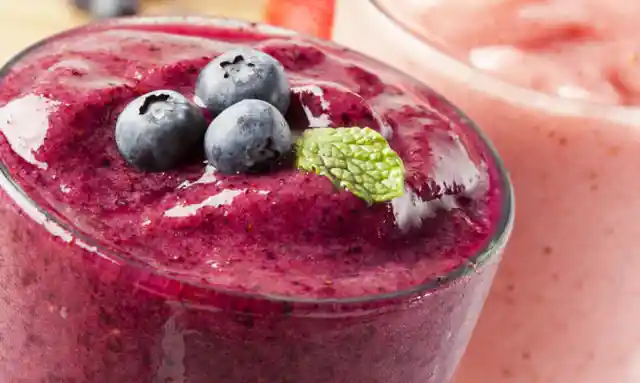

Protein is more thermogenic than carbs or fat, meaning your body burns more calories digesting it.
Certain scents can make your mouth water, and others can actually suppress your appetite. One study published in the Journal of Neurological and Orthopaedic Medicine found that people who sniffed peppermint every two hours lost an average of 5 pounds a month!
Trick #8: Let in the cold


Banana, green apple, and vanilla had similar effects.
A striking new study published in the journal Diabetes suggests that simply blasting the air conditioner or turning down the heat in winter may help us attack belly fat while we sleep. Colder temperatures subtly enhance the effectiveness of our stores of brown fat—fat keeps you warm by helping you burn through the fat stored in your belly. Participants spent a few weeks sleeping in bedrooms with varying temperatures: a neutral 75 degrees, a cool 66 degrees, and a balmy 81 degrees.
Trick #9: Throw out the night light
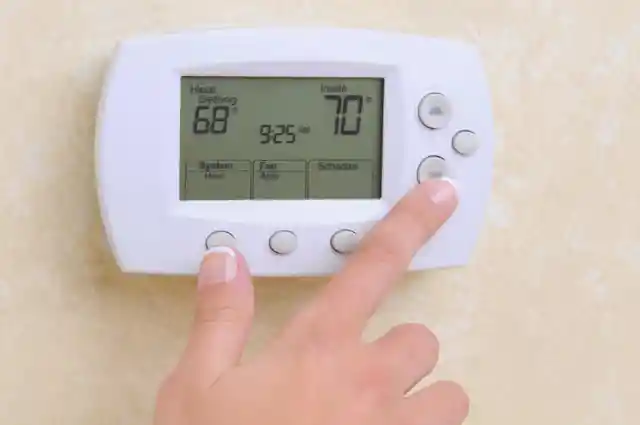

After four weeks of sleeping at 66 degrees, the subjects had almost doubled their volumes of brown fat. (And yes, that means they lost belly fat.)
Exposure to light at night doesn’t just interrupt your chances of a great night’s sleep, it may also result in weight gain according to a new study published in the American Journal of Epidemiology.
Trick #10: Hide the iPad
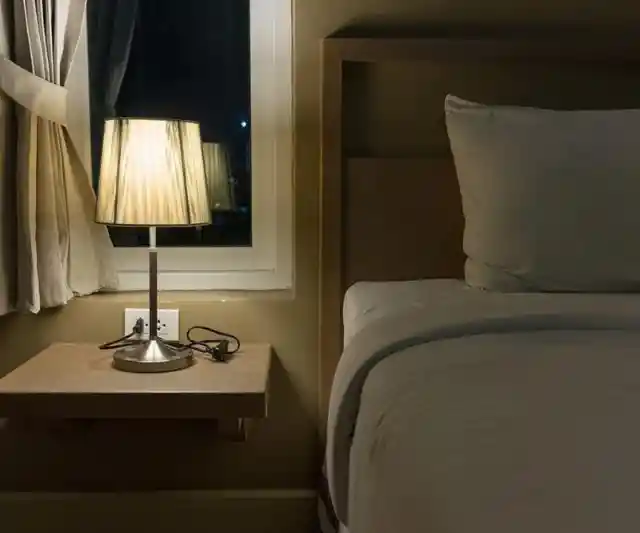

Study subjects who slept in the darkest rooms were 21 percent less likely to be obese than those sleeping in the lightest rooms.
Research suggests that the more electronics we bring into the bedroom, the fatter we get — especially among children. A study in the Pediatric Obesity journal found that kids who bask in the nighttime glow of a TV or computer don’t get enough rest and suffer from poor lifestyle habits.
Trick #11: And switch off Fallon, too
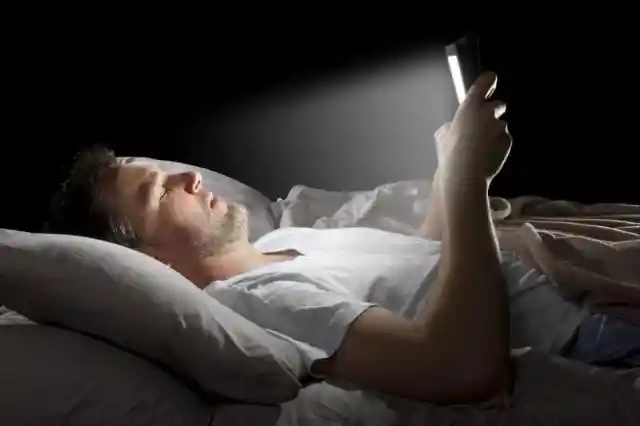
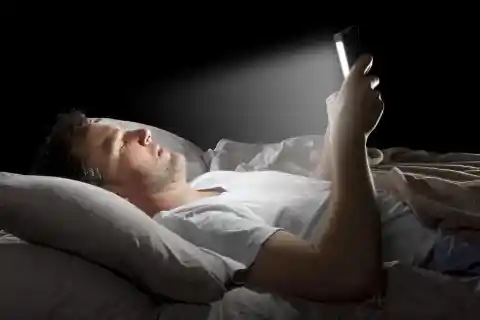
Researchers found that students with access to one electronic device were 1.47 times as likely to be overweight as kids with no devices in the bedroom. That increased to 2.57 times for kids with three devices.
Did you know lean people watch less TV? A recent analysis of studies found that for every two hours spent watching TV, the risk of developing diabetes, developing heart disease, and early death increased by 20, 15 and 13 percent, respectively.
Trick #12: Blackout with blackout shades


Scientists are still figuring out exactly why sitting is so detrimental to health, but one obvious and partial explanation is that the less we move, the less fuel we require; the surplus blood sugar floods the bloodstream and contributes to diabetes and other weight-related risks.
Light-blocking curtains make a huge difference when it comes to falling asleep. Outside light makes it harder for your mind to shut down, even if you think you’re immune to such instinctive signals.
Trick #13: Take a hot shower


Melatonin, the hormone involved in putting your body to sleep, is compromised when light is present.
If you normally bathe in the A.M., listen up. “A hot shower is great for ensuring a good night’s sleep because it can help relieve tension and relax sore muscles. Additionally, it can increase the level of oxytocin—a "love" hormone released by your brain—which can be very soothing,” says Falamas.
Trick #14: Get the night-time blues


The heat from the shower also gives your body temperature a lift, resulting in a quick drop in temp when you get out and towel off, a dip that helps relax your entire system. A hot bath will also have the same effect.
There’s a reason why McDonald’s, Burger King and Wendy’s all have the same red-and-yellow theme colors. Those tones supposedly send us subliminal messages that help make us hungry. Does the same trick work at home?
Trick #15: Don’t work out late


An experiment published in the interior design magazine Contract presented partygoers with three identical venues painted different colors: red, yellow and blue. Participants reported the red and yellow rooms to be equally appetizing (and ate the most in the yellow room), but found the food in the blue room only half as appealing.
Regular workouts have been found to help ease sleepless nights, but hitting the gym too late can mess with your body clock.
Trick #16: Instead, get your “Om” on


Exercising close to bedtime—within about two hours—can energize your body so much that it may not be able to wind down when it’s time to call it a night.
Striking some poses before bed can have a powerful influence on sleep quality because of yoga’s focus on breathing and meditation.
Trick #17: Make dinner—then make whoopie


“Yoga offers a variety of benefits, from increased flexibility and strength to a calmer mind,” says Mark Balfe-Taylor, director of yoga at TruFusion.
Wanna sleep better and lose more weight? Have more sex.
Trick #18: Splurge on a pillow


A new study published in the Journal of Sexual Medicine shows that for every extra hour of sleep women got, their sexual desire increased accordingly. And a separate study showed that the more sex you get, the better you sleep, and the more weight you lose.
When it comes to a better night’s sleep, some gadgets are total ripoffs (like those as-seen-on-TV anti-snoring contraptions), but investing in the right pillow is key. “Buying an orthopedic pillow keeps your neck aligned.
Trick #19: Skip the chocolate


You’ll wake up in the morning with no neck pain,” says Smiley.
Don’t get us wrong; we love chocolate. In fact, any bar that contains at least 70% cacao is one of our favorite low-sugar snacks or desserts because of its high concentration of antioxidants and stress-busting abilities.


Unfortunately, if eaten too late that chocolate could be the reason you can’t fall asleep. Dark chocolate contains caffeine, which can prevent your body from shutting down when you want it to if you’re sensitive to the compound.